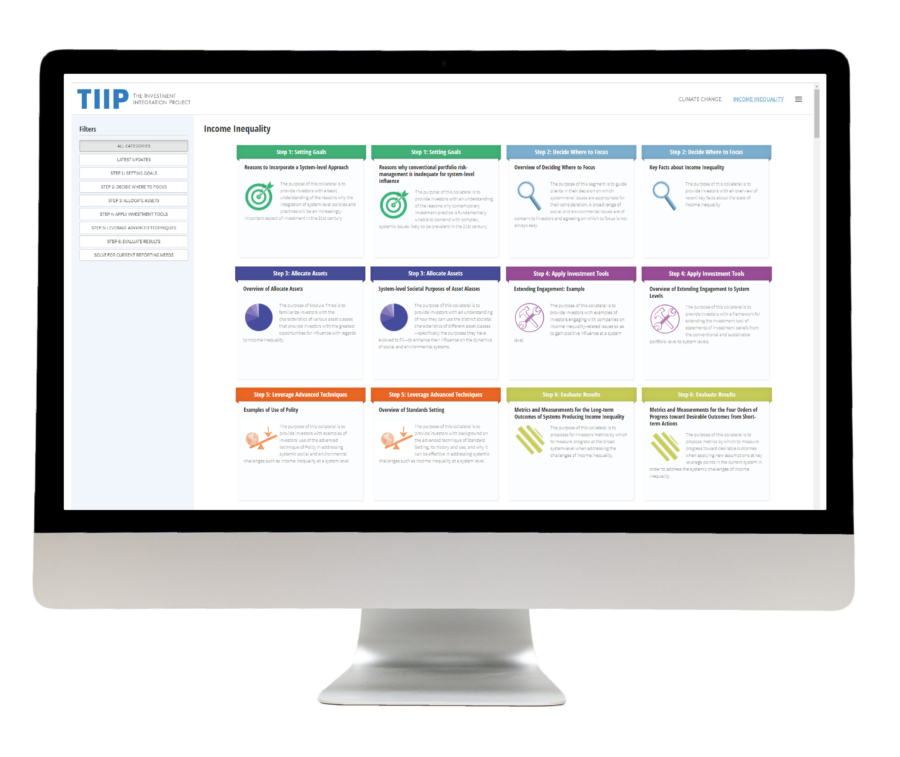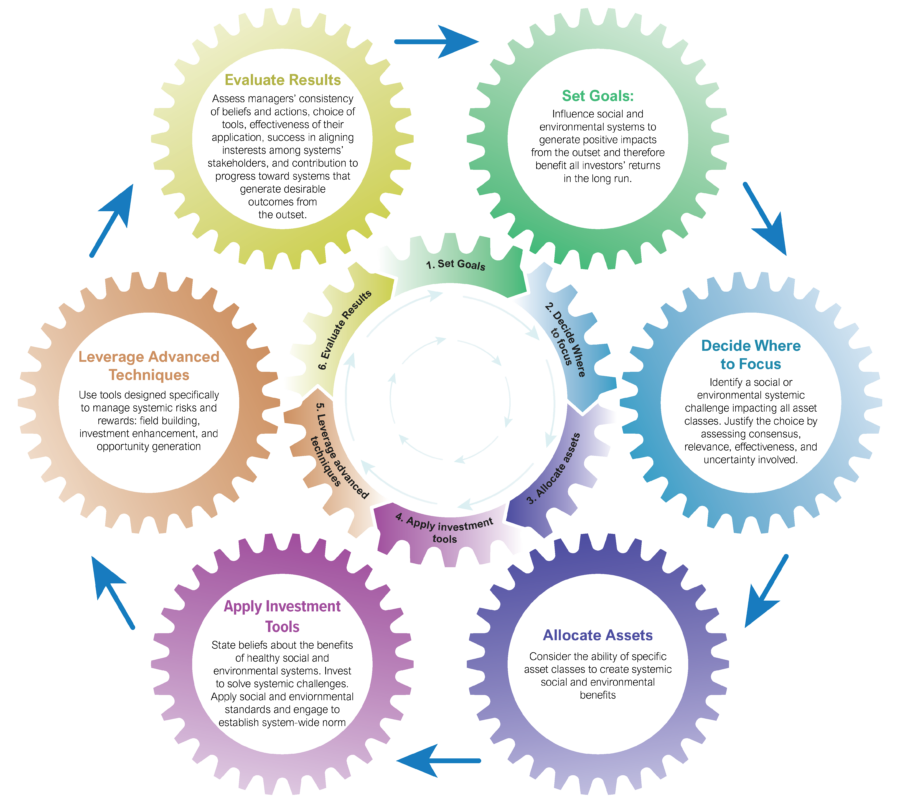What are the biggest threats to an investor’s portfolio these days? Income inequality is stirring nationalistic protectionist rage, upending democracies, and prompting trade wars. Pandemics are shutting down economies and draining local governments of the funds to support workers, communities and businesses. Risk takers looking for fast returns brought the financial system to near collapse, triggering massive unemployment and government bailouts. Disparities in gender and racial diversity and inclusion are hampering economic growth and fracturing social cohesion. Attempts to preserve fossil-fuel jobs are slowing progress toward a low-carbon economy, worsening climate change, which in turn accelerates droughts that then lead to the mass migrations that threaten yet more jobs.
These are the 21st century’s fundamentally destabilizing, new and different, social and environmental challenges. They are global. They have tipping points that once passed cannot be reversed. They are systemic risks in a highly interconnected and complex world. And they threaten long-term investment returns across all asset classes in ways that traditional risk management cannot cope with.
Long term value:
At the same time, leading investment groups increasingly urge investors to take a system-level approach to sustainability assessment. Financial-industry regulators, for example, have issued guidance for investors to address systemic risks. The Financial Reporting Council’s UK Stewardship Code 2020, which went into effect January 1, 2020, directs investors to “identify and respond to market-wide and systemic risks” and to create “long-term value… leading to sustainable benefits for the economy, the environment and society.” 1 [Emphasis added]
Systemic risk:
The Principles for Responsible Investment (PRI) recently asked its investor-members to pursue what it calls “Active Ownership 2.0,” stressing the importance of investors’ stewardship of their assets broadly conceived and the crucial role of collaboration among investors in that stewardship. Regarding system-level challenges, the PRI is explicit:
Systemic issues require a deliberate focus on and prioritization of outcomes at the economy or society-wide scale. This means stewardship that is less focused on the risks and returns of individual holdings, and more on addressing systemic or ‘beta’ issues such as climate change and corruption. It means prioritizing the long-term, absolute returns for universal owners, including real-term financial and welfare outcomes for beneficiaries more broadly. 2
Interconnectivity
Another indication that a focus on systems is moving from the narrow niche of classical impact investing to mainstream investing is a report from the CFA Institute on “The Future of Sustainability in Investment Management,” which was published in December, 2020. The report advises moving beyond traditional ESG practices to system-level thinking: “Systems theory is more than just an extra discipline to be studied; it is as much a way of thinking and communicating that needs a cultural grounding. The key principle is that there are multiple interconnected factors that drive the investment ecosystem that need to be recognized. This…calls for balance — the balance to our thinking that does not seek to oversimplify complex elements.”
It’s time for action
Put simply, the evolving nature of risks and opportunities, mixed with pressure from typically conservative regulators and trade associations, has created the conditions necessary for greater investor interest and action on system-level considerations.
The global economic growth of the past four decades has lifted hundreds of millions out of abject poverty but simultaneously created huge concentrations of wealth among the very rich and a widespread perception of income and wealth inequality around the world. As this trend has continued unabated in recent years, it has impacted national political
systems, polarized and paralyzed governments, sowed class and racial discord, destabilized democracies, and encouraged a nationalist populism that threatens trade wars and worse. Investors increasingly see inequalities of this sort as a systemic risk that threatens economic growth, the stability of financial markets, and the stability of their assets across all classes. As a result, the first of the Turnkey Solution issues will be focused on income inequality.
 TIIP’s Turnkey Solution
TIIP’s Turnkey Solution
